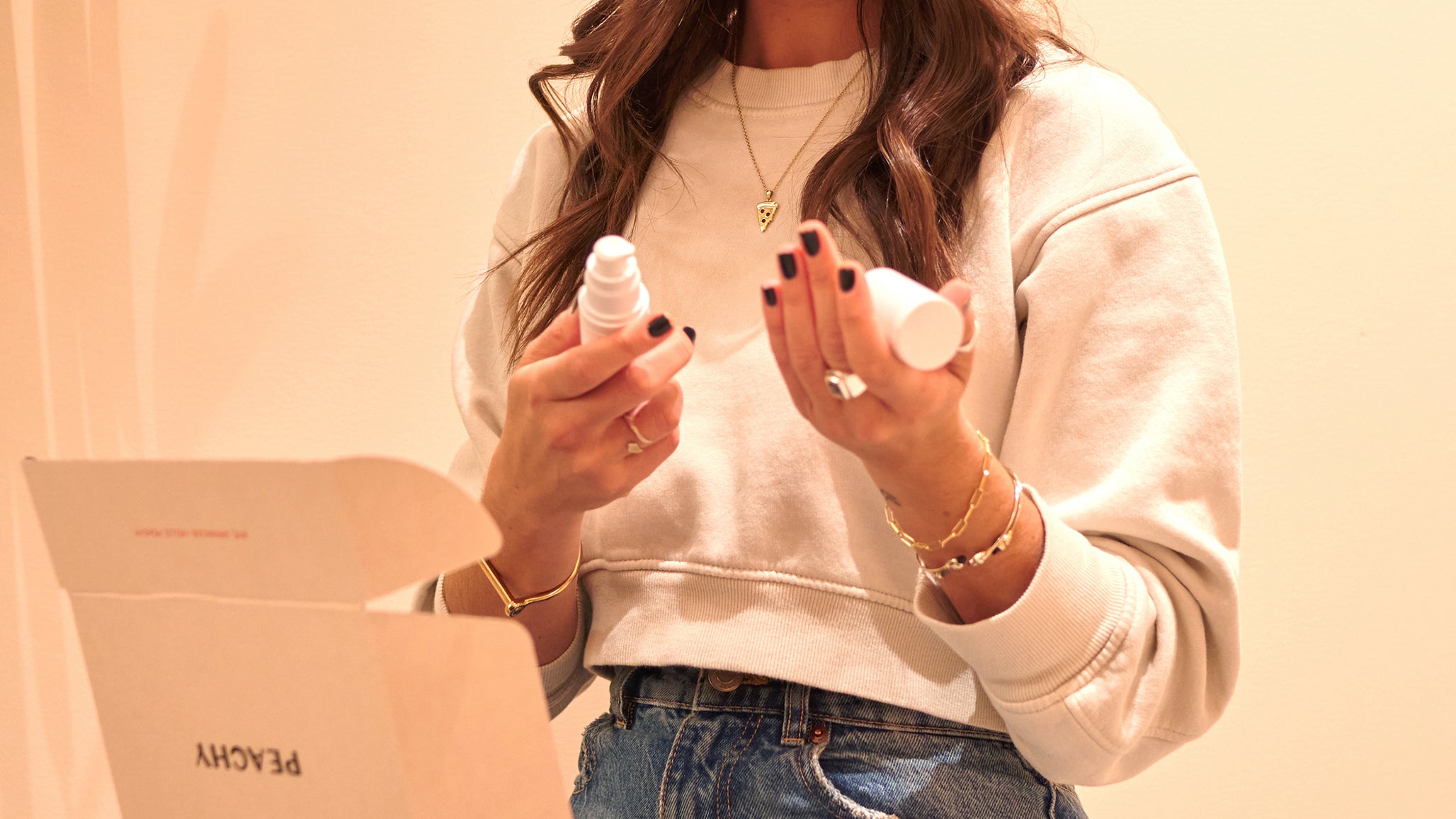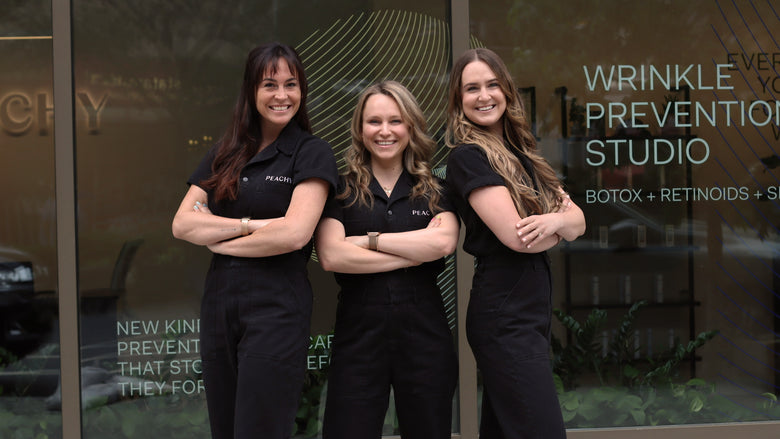Most people are well aware that sunscreen is incredibly important for protecting against skin cancer. Even if SPF had no other benefits, that would be reason enough to make a routine out of using it. But did you know sunscreen also prevents wrinkles?
By protecting your delicate facial skin from the sun’s rays, daily-use sunscreen helps combat sun-related aging known as “photodamage.” You may not know it, but sun exposure is responsible for as much as 80% of facial aging!
Beyond just prevention
Photodamage is by far the greatest contributor to an aging face and its complexion. The process starts within a few minutes of sun exposure – well before you’d feel a burn forming! That’s why routine (i.e. daily) use is so essential for keeping wrinkles at bay.
At the dermal level, UV exposure stimulates proteins responsible for collagen breakdown. Over time, this leads to less elasticity and contributes to the overall aging of your skin.
Sun exposure can also lead to patchy hyperpigmentation, as well as sunspots and roughened texture. That’s where sunblock comes in! Acting as a protective barrier, sunscreen shields skin from both the short-term and long-term effects of UV exposure – and in doing so will help prevent photoaging and the wrinkles that come with it.
Studies further indicate the benefits from using daily sunscreen extend beyond prevention! In a trial, researchers found that by using SPF 30 everyday, participants saw significant reversal in existing photodamage after as little as 12 weeks. By the end of the study, 100% of subjects saw improvement in skin clarity and texture. Pretty amazing, right?
Sunscreen, the safe way
While there are enough sunscreens out there to fill a galaxy, we feel the best option is the one you love using. If you already have a product you use daily, keep it up! If you’re looking around, we recommend opting for products that use physical filters, such as zinc oxide or titanium dioxide.
A recent study testing for absorption levels for six active chemicals common in many sunscreens discovered that all six chemical filters were found in plasma concentrations exceeding FDA recommendations. The clinical effect on these higher concentrations isn’t yet known, and there is still more research needing to be done.
The advantage of physical-filter sunscreens, rather than chemical, is the assurance that the ingredients used have been FDA-approved and guaranteed safe for routine use. If you are in the market, we keep a range of premium mineral sunscreens suited for any skin type in-studio for pickup as well as online.
When it comes to sunscreen, an ounce of prevention really does make the difference!
Citations
Barber K, Searles GE, Vender R, Teoh H, Ashkenas J. Non-melanoma Skin Cancer in Canada Chapter 2: Primary Prevention of Non-melanoma Skin Cancer. Canadian Non-melanoma Skin Cancer Guidelines Committee J Cutan Med Surg. 2015 May-Jun;19(3):216-26. Epub 2015 Mar 16.
Flament F, Bazin R, Laquieze S, Rubert V, Simonpietri E, Piot B. Effect of the sun on visible clinical signs of aging in Caucasian skin. Clin Cosmet Investig Dermatol. 2013;6:221–232. Published 2013 Sep 27. doi:10.2147/CCID.S44686
Hughes MC, Williams GM, Baker P, Green AC. Sunscreen and prevention of skin aging: a randomized trial. Ann Intern Med. 2013;158(11):781.
Randhawa M, Wang S, Leyden JJ, Cula GO, Pagnoni A, Southall MD. Daily Use of a Facial Broad Spectrum Sunscreen Over One-Year Significantly Improves Clinical Evaluation of Photoaging. Dermatol Surg. 2016;42(12):1354.
Matta MK, Florian J, Zusterzeel R, Pilli NR, Patel V, Volpe DA, Yang Y, Oh L, Bashaw E, Zineh I, Sanabria C, Kemp S, Godfrey A, Adah S, Coelho S, Wang J, Furlong LA, Ganley C, Michele T, Strauss DG Effect of Sunscreen Application on Plasma Concentration of Sunscreen Active Ingredients: A Randomized Clinical Trial. JAMA. 2020;323(3):256.




